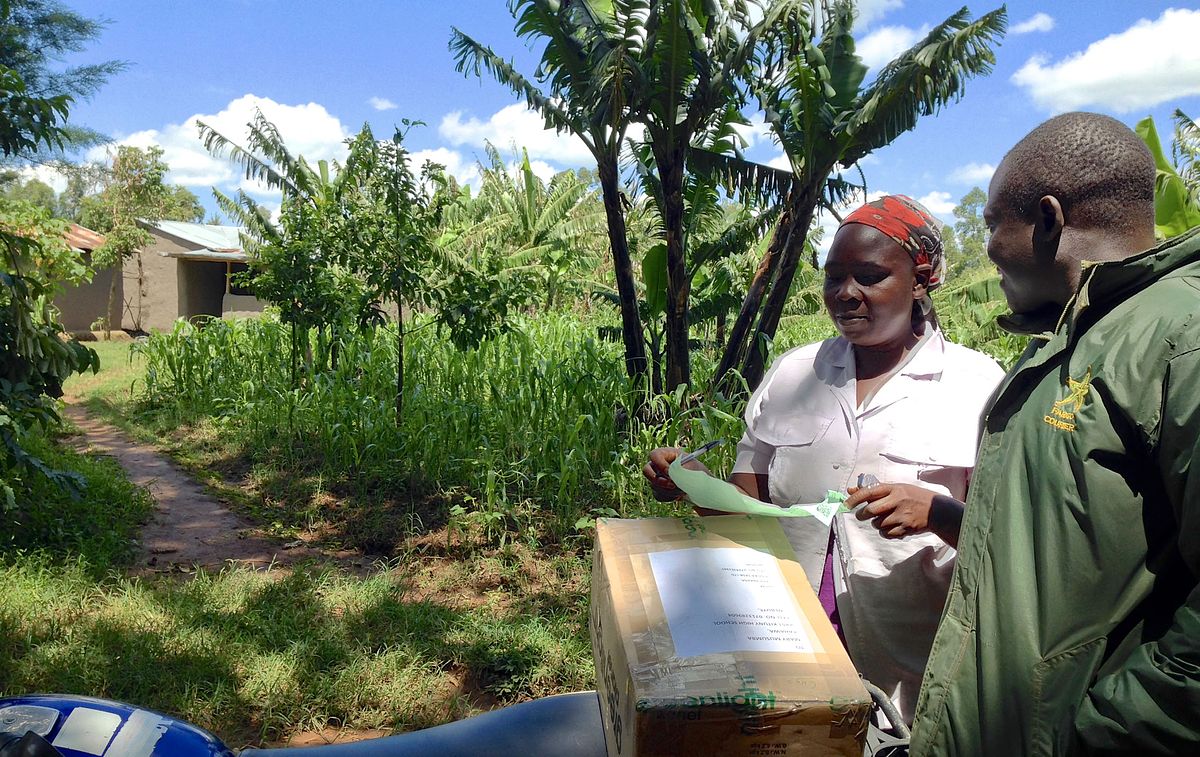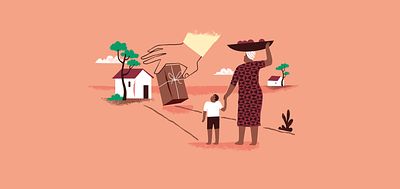When it comes to business in rural East Africa, there’s one important market who are too often being ignored says Rocío Pérez Ochoa, a social entrepreneur and co-founder of Kenyan start-up Bidhaa Sasa.
That market is women.

“It really annoys me when people only want to do business with the chiefs from the villages,” says Rocío, who manages Bidhaa Sasa’s holding company in the UK, while co-founder David Disch oversees operational activities in Kenya. “They think women in the countryside aren’t empowered, that they don’t have money. But rural life is very much a female business.”
One of the main reasons for this female skew is that men in rural areas often migrate towards the cities for work, only coming home at weekends or for holidays. “The women stay at home and have all the responsibilities in terms of the children and maintaining the house,” says Rocio. “Yet they are totally undervalued.” This female market is one that distribution and finance enterprise Bidhaa Sasa has managed to successfully tap into. Developing its business model in tandem with its female customers.

What is Bidhaa Sasa?
Meaning ‘Products now!’ in Swahili, Bidhaa Sasa launched in 2015 to provide life-improving household goods to rural households. The products, including solar lamps and systems, efficient stoves and gas cylinders for cooking, water tanks and agricultural products, are chosen to save users time, money and physical effort.
They think women in the countryside aren’t empowered, that they don’t have money. But rural life is very much a female business.
For example, if a home has a water tank then families don’t have to travel hours each day to collect water. With a solar system, they’re saving money as they don’t need kerosene, and an efficient stove can drastically cut the amount of fuel needed, or reduce time spent looking for firewood.
To make these products more affordable, Bidhaa Sasa offers a credit system so clients can pay in instalments, and goods are delivered direct to the customer’s door. This is vital as, while many of these products are readily available in cities, manufacturers and suppliers often don’t reach as far as the villages. “When we decided to go for this, we wanted to focus specifically on the last-mile distribution bottleneck,” says Rocío, a former climate change policy advisor for the UK Government, who met co-founder David Disch at Imperial College London, where they were both studying for an in MSc in Environmental Technology. “There were many developments in technology but nobody had really cracked how to get these new products to the people who need them.”
The founders, who were both working for companies providing access to clean energy in developing countries when they came up with the idea, decided to base their enterprise in Kenya. David had been living there for around five years, and Rocio had experience of working in East Africa, so targeting high-density rural areas in the country made sense.

Learning along the way
When launching Bidhaa Sasa – which now has around 40,000 clients, 70% of whom are female – it was immediately clear to Rocío that they needed to talk to women first.
“Women are generally the ones who do the cooking and household chores in the villages,” she says. “They’re ensuring the kids go to school and have light to do their homework. If they’re not convinced the goods we’re selling will improve their quality of life, then it’s a waste of time.”
We have 98% repayment rates, which is amazing.
While talking to women was always the plan, it was the strong female networks they encountered in the villages that helped Bidhaa Sasa develop its business model. It became clear that female customers were promoting the products to friends and neighbours spontaneously, inviting them round to show them how the new technology worked.
Bidhaa Sasa decided to piggyback on these existing networks, recruiting the self-appointed ambassadors as paid leaders and devising a host-party model. “It’s very much like the Tupperware model,” says Rocío. “Leaders don’t sell, they don’t risk their own capital, they host parties with demonstrations. “So if it’s a stove they’ll demonstrate cooking and show some recipes. The physical demonstration is key because you’re in the countryside, you can’t take things back to the store, you need to see they work.”
Sales are made in groups, which helps both with lower operating costs and also finance. Bidhaa Sasa uses a technique called group liability, which is relatively well known in many developing countries. “People already borrow and save within groups in Kenya, often informally,” says Rocío. “So this type of borrowing is very acceptable. If everybody in the group agrees to buy the stove and pay $7 every month, everybody in the group is liable for the payments. We have 98% repayment rates, which is amazing.”
Start up challenges
Initially funded by Rocío’s own investments, Bidhaa Sasa’s proven record with repayments means it’s now able to borrow money from crowdfunding platforms and foundations.The company is also branching out into further regions of Kenya and has secured a grant to launch the pilot in Uganda.

But these successes don’t mean a lack of challenges along the way.
“Finding talent in the rural areas has been tricky,” says Rocío. The company employs locally and has an in-house programme to develop staff but the brain drain from the countryside to the city makes filling managerial positions tough. Products can also prove an issue with Bidhaa Sasa needing to bulk buy to ensure they have stock, sometimes over or under-ordering in the early days as they worked things out. Finding new items can be tricky too, as the purchase power of clients affects the product range. “We found a really cool new affordable electric cooker recently and wanted to trial it,” Rocío says. “But the importer only had 15 units in the whole country. It can be hard.”
It’s nothing the founders weren’t expecting though, financial worries, supply chain issues and self-doubt are all par for the course. As Rocío says, “They say founders are naive or arrogant, otherwise you’d never risk it.” It’s very hard to imagine she’s either.
To find out more about Rocío and Bidhaa Sasa, visit the website.

